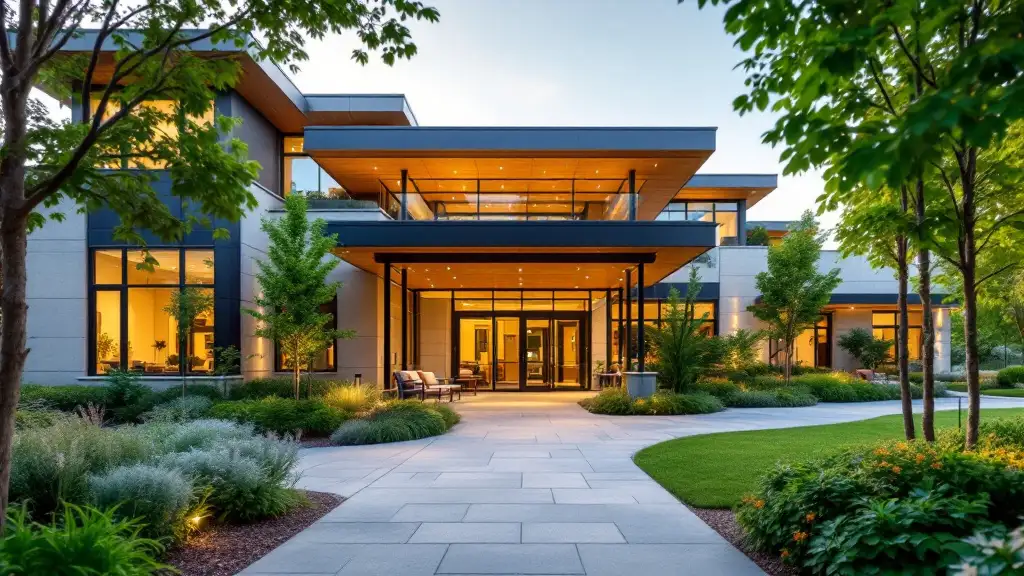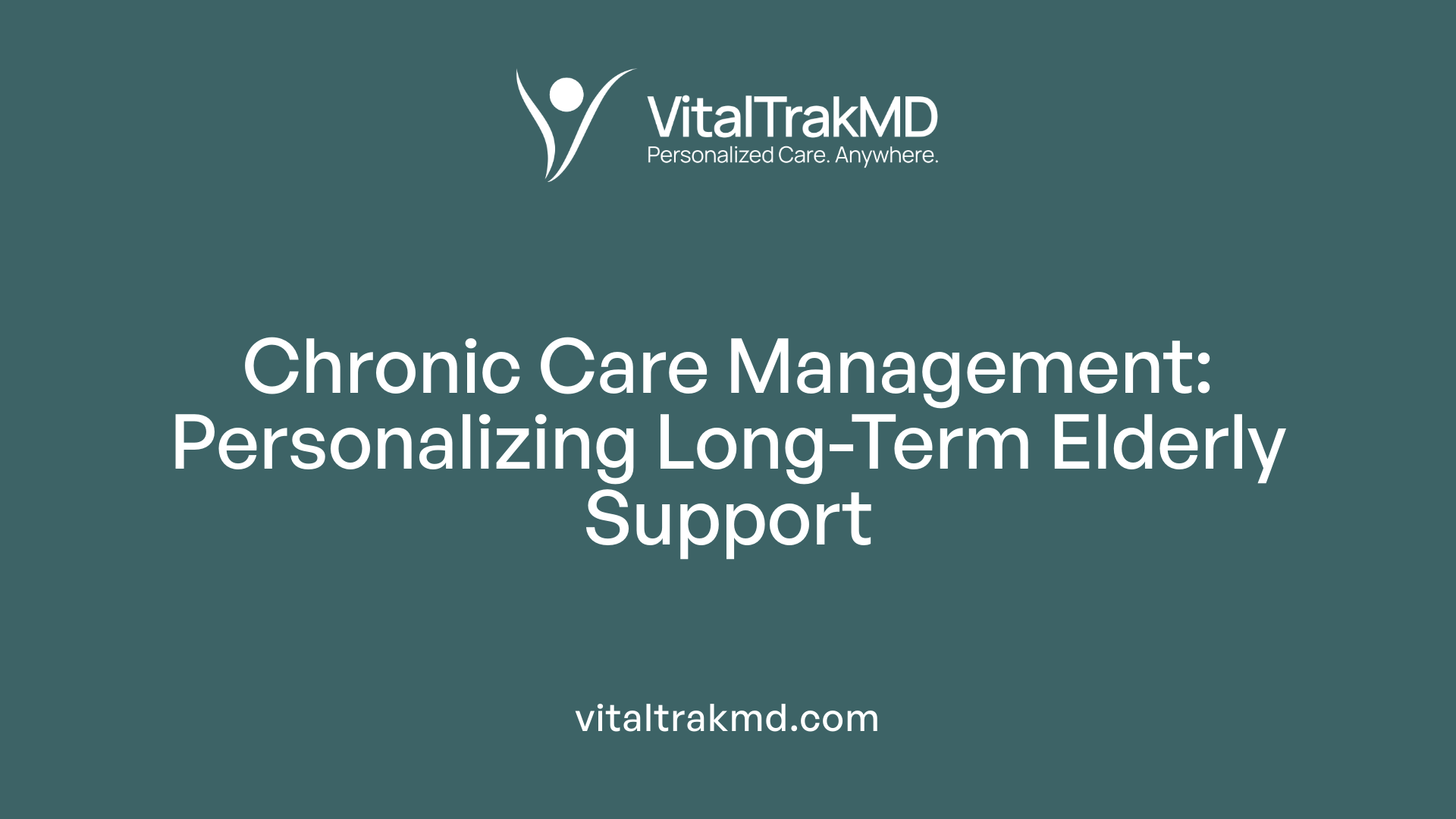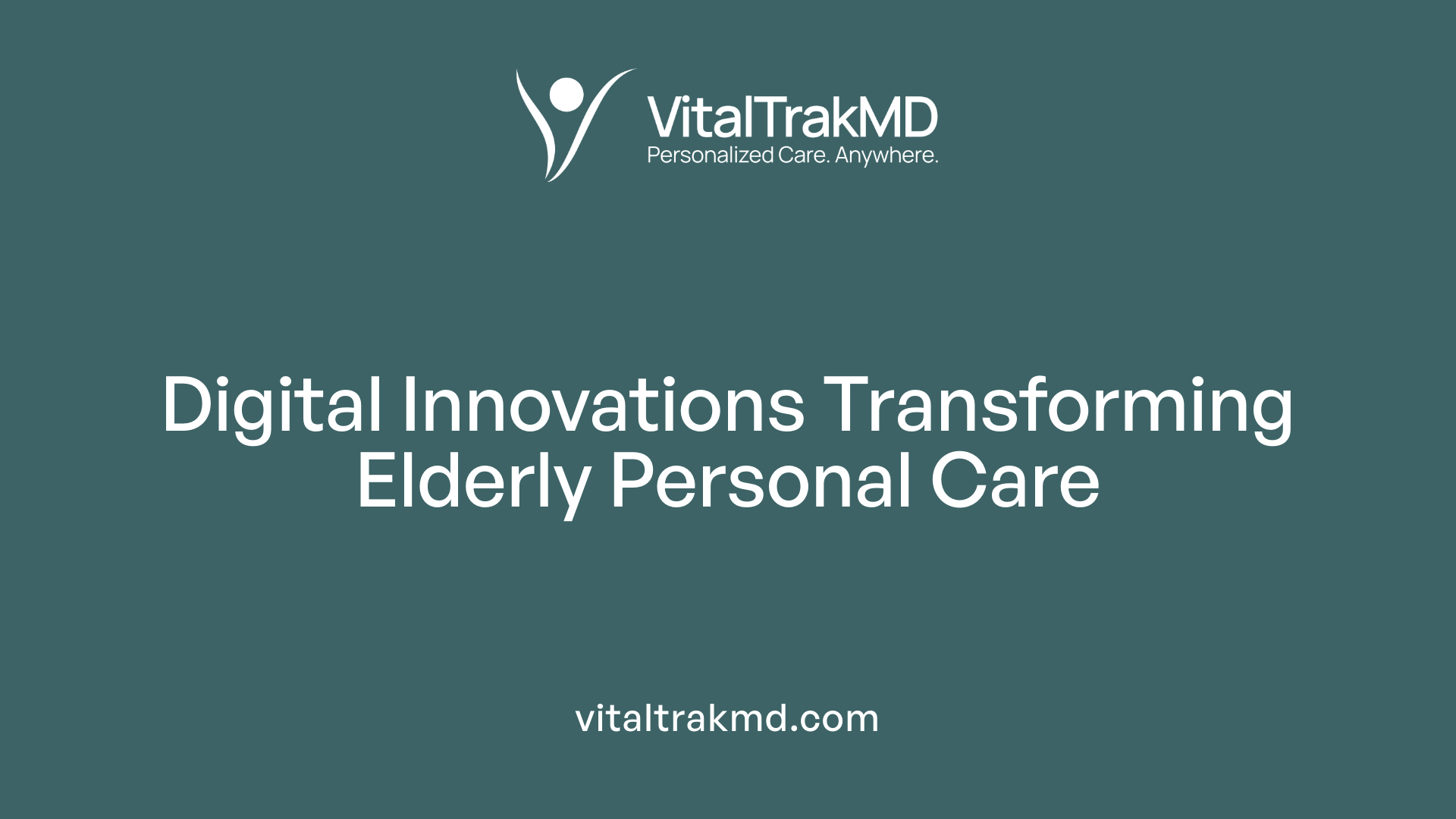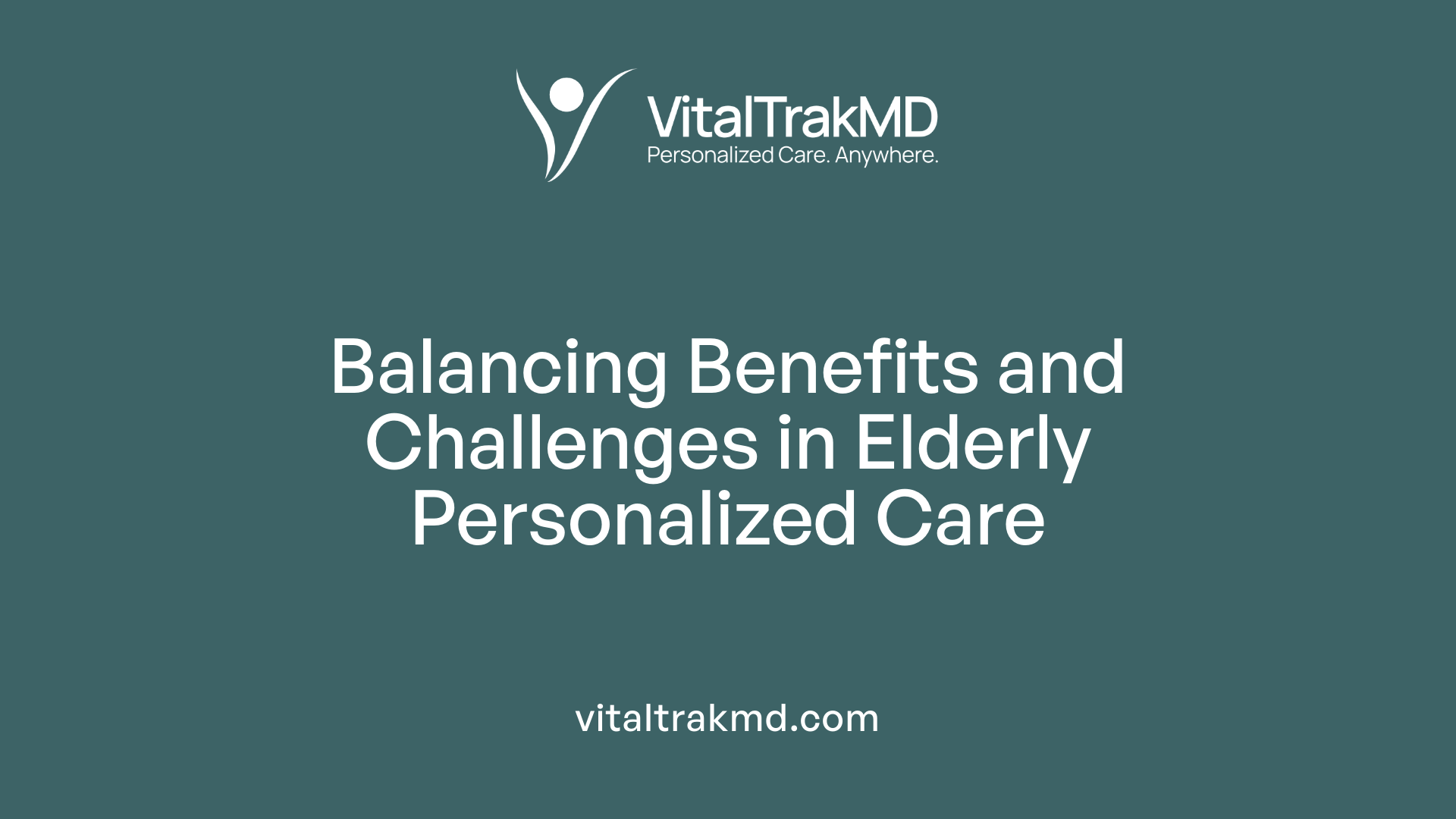Personalized Chronic Care Plans Versus Generic Clinic Visits for Seniors

Transforming Elderly Care with Personalization
As the population ages, the healthcare system is increasingly recognizing the importance of individualized care strategies. Personalized chronic care plans represent a paradigm shift from traditional, episodic clinic visits towards a continuous, resident-centric approach. This article explores the nuances of personalized healthcare for seniors, its benefits, development processes, and how it compares to standard care models.
Understanding Personalized Care Planning in Elderly Healthcare
What is personalized care planning?
Personalized care planning is a collaborative process involving both residents and healthcare professionals. It aims to develop tailored strategies that address the individual's unique health needs, preferences, cultural background, and life goals. These plans focus on managing long-term health conditions effectively by setting specific goals and creating actionable steps.
How are these plans developed?
Creating personalized care plans involves comprehensive assessments of the elderly individual's health status, lifestyle, and emotional well-being. Input from residents, their families, and multidisciplinary care teams—including doctors, nurses, social workers, and therapists—is crucial. The process emphasizes resident involvement to ensure that their wishes and routines are respected.
Why is this approach significant?
Personalized care planning enhances the quality of life for seniors by promoting independence and autonomy. Tailoring care enables better management of chronic illnesses such as diabetes, heart failure, or asthma, potentially reducing hospitalizations and complications. Moreover, these plans support emotional well-being by incorporating hobbies, spiritual activities, and social interactions, fostering a sense of connection and trust.
Benefits of a tailored approach
- Improvement in health indicators like blood pressure and blood sugar levels
- Increased confidence in self-care and self-efficacy
- Higher resident satisfaction and dignity
- Promotion of mental health through emotional and spiritual support
How to make personalized care plans effective?
Effective plans are regularly reviewed and adjusted as conditions change. Frequent communication between residents and healthcare providers, the use of technology such as remote monitoring, and a multidisciplinary approach contribute to better outcomes. Engaging residents actively in decision-making helps ensure the care remains aligned with their changing needs and goals.
How does coordinated chronic care management (CCM) fit in?
CCM involves creating structured, personalized plans for elderly patients with multiple chronic conditions lasting at least a year. Continuous monitoring, medication management, and collaboration with specialists are key components. CCM aims to prevent complications, reduce hospital admissions, and improve overall quality of life, with the added benefit of reducing healthcare costs.
| Aspect | Focus | Outcome |
|---|---|---|
| Personalized Care Planning | Individual needs, preferences, cultural factors | Improved health and satisfaction |
| Delivery Method | Face-to-face, telephone, technology-supported | Enhanced engagement and adjustments |
| Benefits | Better health management, emotional well-being, independence | Reduced hospitalizations, higher quality of life |
| Chronic Care Management | Regular assessments, medication, and specialist coordination | Prevent complications, cost savings |
Understanding and implementing personalized care planning ensures that elderly individuals receive compassionate, effective, and respectful healthcare tailored to their unique circumstances.
The Evidence Supporting Personalized Care in Chronic Disease Management
Research studies focusing on conditions like diabetes, mental health issues, heart failure, renal disease, and asthma reveal that personalized care planning can make a meaningful difference in managing long-term health conditions. These studies primarily involved interventions supported through face-to-face visits or telephone contact, illustrating practical approaches within routine healthcare settings.
The evidence indicates that personalized care strategies lead to modest but significant improvements in physical health indicators, such as glycated hemoglobin (HbA1c) levels in diabetes and systolic blood pressure. Beyond physical health, psychological wellbeing—particularly symptoms of depression—also shows measurable enhancements when care plans are tailored to individual needs.
Personalized care also boosts patients' confidence and skills in self-managing their conditions. Patients report higher self-efficacy, better adherence to treatment regimens, and more engagement in self-care activities, which collectively contribute to improved health outcomes.
Interventions that are comprehensive, involve multiple stages of planning, and are well integrated into routine care tend to produce greater benefits compared to less intensive or isolated approaches. This suggests that ongoing, consistent engagement with patients and collaboration across healthcare providers are essential for maximizing positive outcomes.
Importantly, no adverse effects have been associated with personalized care planning, supporting its safety and suitability as a standard practice for long-term condition management.
In summary, evidence supports that tailored, collaborative care approaches outperform generic options by fostering better physical and psychological health, enhancing self-management, and increasing patient satisfaction. These benefits are especially significant in elderly populations, where personalized models can reduce hospitalizations, improve quality of life, and maintain independence.
Distinct Features of Personalized Chronic Care Plans
 Personalized chronic care plans are designed to meet the unique needs of each resident, making them distinctly different from standard clinic visits. These plans are centered on the individual, taking into account their personal preferences, cultural backgrounds, and lifestyle choices. This resident-centric approach ensures that care is tailored specifically to what matters most to each individual.
Personalized chronic care plans are designed to meet the unique needs of each resident, making them distinctly different from standard clinic visits. These plans are centered on the individual, taking into account their personal preferences, cultural backgrounds, and lifestyle choices. This resident-centric approach ensures that care is tailored specifically to what matters most to each individual.
Development of these plans involves active participation from residents, their families, and a multidisciplinary team of healthcare providers. This collaborative process ensures that the plan reflects the resident’s health goals, social circumstances, and emotional well-being, fostering a sense of ownership and trust.
Regular reviews and updates are integral to effective personalized care plans. As residents’ health conditions change, so too do their care strategies. Continuous assessment allows the care team to modify interventions, medications, and support systems, ensuring that the plan remains aligned with current health needs and personal preferences.
Compared to standard clinic visits, which often follow a routine and episodic approach, personalized chronic care plans emphasize ongoing management and coordination. They typically involve comprehensive strategies such as medication management, safety measures, physical therapy, and emotional support, often delivered in the comfort of the senior’s home environment. This continuous, tailored approach not only helps in improving long-term health outcomes but also enhances quality of life by promoting independence and emotional well-being.
Ultimately, these plans foster a deeper understanding of each resident's life and health, enabling more effective, respectful, and holistic care tailored to the complex needs of aging individuals.
Development and Implementation of Personalized Care Strategies
 Personalized care strategies for the elderly are created through a detailed and careful process that begins with comprehensive assessments of each individual. These assessments include evaluating the resident's overall health status, medical history, social circumstances, cultural background, and personal preferences. Such evaluations help healthcare providers understand the unique needs and expectations of each person.
Personalized care strategies for the elderly are created through a detailed and careful process that begins with comprehensive assessments of each individual. These assessments include evaluating the resident's overall health status, medical history, social circumstances, cultural background, and personal preferences. Such evaluations help healthcare providers understand the unique needs and expectations of each person.
A collaborative approach is crucial. Residents are actively involved in discussions alongside their families and a multidisciplinary healthcare team that may include doctors, nurses, social workers, and therapists. This teamwork ensures that care plans are sensitive to cultural practices, lifestyle choices, and long-term goals, fostering a person-centered approach.
To organize and document the care plan, structured templates are often utilized. For example, the CDC's Complete Care Plan template consolidates essential information such as existing health conditions, medications, therapies, and contact details for healthcare providers. These templates serve as a valuable guide for care delivery and communication among team members.
Once developed, the care plan is not static. It is regularly reviewed and updated—at least once a year or whenever there are significant changes in health or personal circumstances. Technology plays a vital role here; electronic health records and various digital tools facilitate tracking progress, sharing information, and coordinating services.
Implementing personalized care involves several strategies. Care teams coordinate services tailored to each resident, supporting autonomy and emotional well-being. Technologies like remote health monitoring and digital records streamline communication and ensure timely adjustments.
Despite the thorough process, challenges such as time constraints, resistance to change, or limited resources can arise. These are mitigated through ongoing staff training, staff development programs, embracing new technologies, and fostering a resident-centered culture focused on dignity and independence.
Overall, developing and implementing personalized care plans demands a combination of comprehensive assessments, team collaboration, technological integration, and continuous review to provide effective, respectful, and adaptable elder care.
Chronic Care Management (CCM): A Personalized Approach to Elderly Care

What is Chronic Care Management (CCM) and how does it support personalized care?
Chronic Care Management (CCM) is a systematic approach that involves developing detailed, individualized care plans for elderly patients who have two or more long-term health conditions lasting at least a year. These carefully crafted plans are aimed at better managing chronic diseases such as diabetes, heart failure, and renal disease.
The goal of CCM is to improve overall health outcomes through regular health check-ins, ongoing assessments, and targeted interventions. These interventions often include medication management, continuous health monitoring, and coordination among different healthcare providers.
Healthcare professionals play a crucial role in delivering CCM by supporting patients through consistent communication, support, and adjustments to care strategies. They often utilize digital health tools like remote patient monitoring to keep track of patient health outside traditional clinical settings.
The benefits of CCM are substantial. It can lead to better management of chronic diseases, fewer hospital admissions, and an overall higher quality of life for seniors. Additionally, it helps in preventing severe complications associated with long-term conditions, such as diabetic crises.
By focusing on individualized plans that consider each patient’s specific needs and circumstances, CCM embodies a personalized care approach that adapts to the evolving health status of elderly residents, fostering healthier, more autonomous living.
Technology and Personalization in Elderly Care
 The integration of technology in personalized care planning is transforming how elderly patients manage their health. Electronic health records (EHRs) enable healthcare providers to maintain comprehensive, up-to-date information that supports tailored care plans. These digital records facilitate better coordination among multidisciplinary teams, ensuring treatments align with individual needs and preferences.
The integration of technology in personalized care planning is transforming how elderly patients manage their health. Electronic health records (EHRs) enable healthcare providers to maintain comprehensive, up-to-date information that supports tailored care plans. These digital records facilitate better coordination among multidisciplinary teams, ensuring treatments align with individual needs and preferences.
Remote monitoring devices further enhance personalized care by providing real-time data on vital signs, blood glucose levels, and other health metrics. This continuous flow of information allows for timely interventions, adjustments to medication or therapies, and prompt response to potential issues.
Digital tools play a crucial role in ongoing care and regular reviews, making it easier for clinicians to track progress and adapt plans based on changing conditions. For residents, this means more consistent support, improved safety, and increased confidence in managing their health.
By leveraging technology, elderly care can become more engaging and secure. Features like reminders for medication, virtual consultations, and interactive health apps empower residents to participate actively in their care. Overall, embracing digital solutions fosters a more responsive, resident-centered approach, boosting outcomes and satisfaction.
Benefits and Challenges of Personalized Care for Seniors

What improvements does personalized care provide to physical and emotional health?
Personalized care planning has shown to produce small but meaningful improvements in physical health indicators like glycated hemoglobin (HbA1c) and systolic blood pressure. These improvements can lead to better management of chronic illnesses such as diabetes and heart failure.
Additionally, emotional health benefits are evident through reductions in depression, enhancing overall well-being. Care plans that incorporate emotional support activities—like visits, spiritual practices, or hobbies—foster a sense of connection, promoting mental health.
Regular, tailored interactions help residents feel understood and respected, boosting their mood and engagement.
How does personalized care increase safety and independence?
Residents with personalized care plans often experience an increased sense of safety, as their routines are aligned with their preferences and individual needs. These plans promote independence by empowering seniors to make choices about their daily activities, fostering dignity and autonomy.
By supporting self-management—such as medication adherence and activity levels—personalized plans can lead to fewer complications and hospitalizations. This makes aging in place a safer, more viable option.
What challenges might arise with personalized care, and how can they be addressed?
Implementing personalized care may face obstacles like time constraints for healthcare providers and resistance from staff unaccustomed to new methods. Additionally, technological barriers or lack of training can hinder effective care planning.
To overcome these hurdles, targeted staff training programs on personalized approaches and technology integration are essential. Encouraging teamwork and providing sufficient resources can also facilitate smoother implementation.
What strategies can improve the success of personalized care initiatives?
Embedding comprehensive assessments and involving residents, families, and multidisciplinary teams ensures plans are relevant and effective. Regular review and adjustments based on ongoing feedback maintain alignment with evolving needs.
Utilizing digital health tools, such as remote monitoring, enhances communication and ongoing support. Moreover, integrating care into routine practices ensures sustained benefits and better health outcomes.
| Aspect | Approach | Benefits | Additional Details |
|---|---|---|---|
| Physical Health | Tailored treatments, regular assessments | Better disease management, fewer complications | Monitors like remote patient tracking support ongoing care |
| Emotional Well-being | Incorporating hobbies, spiritual activities | Reduced depression, improved mood | Enhances sense of purpose and connection |
| Safety & Independence | Resident-centered routines | Increased autonomy, reduced hospital visits | Empowers decision-making |
Conclusion: The Future of Personalized Elderly Healthcare
Personalized care planning offers numerous benefits for elderly patients with chronic conditions. By tailoring healthcare strategies to individual needs, preferences, and lifestyles, it promotes better health outcomes, enhances patient satisfaction, and fosters independence. These plans incorporate not just physical health management but also emotional and social well-being, creating a holistic approach to aging.
Implementing comprehensive and integrated personalized care, supported by ongoing communication and technology, has shown to improve key health indicators such as blood pressure and blood sugar levels. Additionally, personalized strategies can reduce hospital admissions and emergency visits, leading to significant cost savings for healthcare systems.
The adoption of these approaches aligns with a patient-centered philosophy, emphasizing respect, autonomy, and quality of life. As evidence of their effectiveness continues to grow, healthcare providers are encouraged to embrace and integrate personalized care planning into routine practice. Doing so promises a future where elderly patients enjoy healthier, more independent lives with fewer complications and a better overall experience.
Paving the Way for Tailored Elderly Care
Implementing personalized chronic care plans marks a significant advancement in elderly healthcare, offering holistic benefits that extend beyond traditional episodic visits. By fostering continuous, resident-focused strategies reinforced through technology and multidisciplinary collaboration, personalized care maximizes health outcomes, enhances quality of life, and promotes independence. The growing evidence underscores their effectiveness, encouraging healthcare systems to embrace this approach for a sustainable and humane future in senior care.
References
- Personalised care planning for adults with chronic or long‐ ...
- How Personalized Care Plans Improve the Resident ...
- Chronic Care Management Benefits for Elderly Patients
- Steps for Creating and Maintaining a Care Plan | Caregiving
- How Personalized Care Plans Improve the Resident ...
- Customized Care at Home: The Benefits of Personalized ...
- Personalised care planning for adults with chronic or long‐ ...
- Why Personalized Home Healthcare is Essential for Elderly ...
- Private In-Home Health Care Vs. Traditional Care
Recent articles
Want to Feel Better and Live Healthier?
Join hundreds of patients taking control of their health with personalized care that fits their life – not the other way around.
Rated 4.8/5 by 32+ customers







